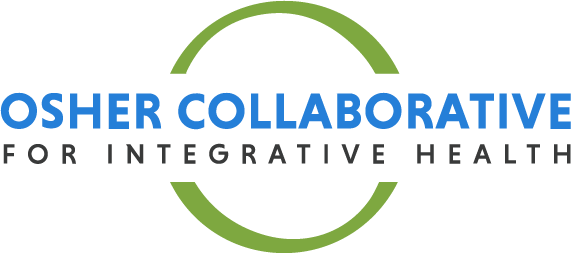Important Foods for Cancer Patients

NOTE: For delicious and nutritious meal ideas, we’ve created a 7-day sample meal plan.
|
Important Foods for Cancer Patients
|
Daily
|
Weekly
|
|
Fruits & Vegetables
Per day: 7-9 servings (serving size = ½ cup cooked or 1 cup raw), 4+ colors |
||
| Cruciferous Veggies: broccoli, cauliflower, Brussels sprouts, kale, cabbage, arugula, collard greens, mustard greens, bok choy, radishes, rutabaga, turnips, watercress |
X
|
|
| Berries: raspberries, blueberries, blackberries, strawberries, cranberries, red & purple grapes, pomegranates |
X
|
|
| Dark Leafy Greens: kale, collard greens, swiss chard, mustard greens, beet greens, turnip greens, spinach, bok choy |
X
|
|
| Lycopene Rich: tomato paste, tomato sauce, tomato soup, tomato juice, tomato salsa, watermelon, guava, papaya, pink grapefruit |
X
|
|
| Carotene Rich (red/yellow/orange): carrots, sweet potatoes, winter squash, red pepper, kale, mango, apricot, peach, persimmon, cantaloupe |
X
|
|
| Alliums: garlic, onions, shallots, leeks, chives, scallions |
X
|
|
| Mushrooms: crimini, portobello, enoki, shitake, maitake, oyster |
|
X
|
|
Whole Grains
|
||
| Low Glycemic Starches: amaranth, barley, brown rice, wild rice, buckwheat, kamut, rolled oats, quinoa, rye, spelt, faro, millet, polenta, popcorn, pumpernickel |
X
|
|
|
Proteins
|
||
| Beans and Lentils Traditional Soy Foods:* tofu, miso, tempeh, edamame Organic & Pasture-Raised/Grass-Fed:** eggs, lean meats, poultry, dairy Cold Water Fish (wild):*** salmon, sardines, herring, halibut, tuna, anchovies, trout |
X
X
|
.
X
.
2+
|
|
Healthy Oils
|
||
| Omega 3 Fats: wild cold water fish, grass-fed/pasture-raised eggs, meat & poultry, ground flax or chia seeds, walnuts Heart Healthy Oils: olive oil, avocado, nuts, seeds, coconut |
X
.
X
|
|
|
Spices & Tea
|
||
| Spices/Herbs: ginger, turmeric, black pepper, cinnamon, chili powder, basil, parsley, cilantro, dill, rosemary, cumin, oregano, thyme, saffron |
X
|
|
| Japanese Green Tea**** (3+ cups/day): brew at least 8-10 minutes |
X
|
|
*Traditional Soy Foods: Current research supports the consumption of up to 1 serving per day of traditional whole soy food without risk to hormonally-driven cancers. That said, it is important to choose whole soy food, like the examples listed. The risks incurred from the consumption of processed soy foods and isolated soy proteins are as yet unclear. We will be exploring this topic further in our FAQ section.
**Organic and Pasture Raised/Grass-Fed Meats: Although more expensive, organic and pasture-raised animal products do contain a higher nutritional quality and are free of hormones, antibiotics, or other drugs. Pasture-raised meats are naturally lower in saturated fat and cholesterol and contain omega-3 fats; making them less pro-inflammatory than grain-fed meats. We explore the links between meat, dairy, and cancer further in our FAQ section.
***Cold Water Fish: Similar to pasture-raised animals, wild caught fish are higher in omega-3 s than farm-raised fish, and therefore generally a healthier choice. Although fish can be contaminated with mercury, research supports the benefits of consuming fish at least twice a week. Here is a list of the varying mercury-content found in fish. Choose fish that are lower in mercury but still high in omega-3s, like salmon, sardines, and herring. Although the Fukushima disaster of 2011 raised concern regarding radiation exposure in fish coming from the Pacific Ocean due to radiation being detected in West Coast waters and marine life, levels of radioactivity are well below the most protective standards.
****Organic Japanese Green Tea: The extended brew time is important to maximize the phytonutrient content, however this may also result in a stronger and more bitter tasting tea. If this is not to your liking, try mixing it with an herbal tea of your choice to hide some of the flavor. There may still be some benefits from brewing the tea with usual brewing times (3 minutes), so don’t let the stronger flavor dissuade you from drinking green tea. Be aware that tea plants are grown with pesticides and those pesticides will be transferred from the leaves during the brewing process. As with all foods, buy organic whenever possible to limit your exposure to pesticides and other carcinogenic compounds. We explore the issue of organics further in our FAQ section.
Foods That May Increase Risk for Cancer
Limit or avoid the following:
- Concentrated Sweets: Candy, sodas, other sweetened beverages, cookies, cakes, etc. We explore this topic further in our FAQ section.
- High Glycemic Starches: White bread, white rice, white pasta, crackers, chips, baked goods, etc.
- Harmful Fats: Hydrogenated or partially hydrogenated oils, fried foods, margarine, vegetable oils (corn, soy, sunflower), conventional animal and dairy foods
- Processed Meats: Hot dogs, salami, charred meats, bologna, smoked meats, pickled foods
- Food Processing Chemicals: Artificial additives, preservatives, colors, sweeteners or pesticides/herbicides
- Alcohol: If you drink at all, red wine would be the most beneficial, less than three glasses per week. We explore this topic further in our FAQ section.
Note: No compensation has been received in exchange for including brand name products on this site.

